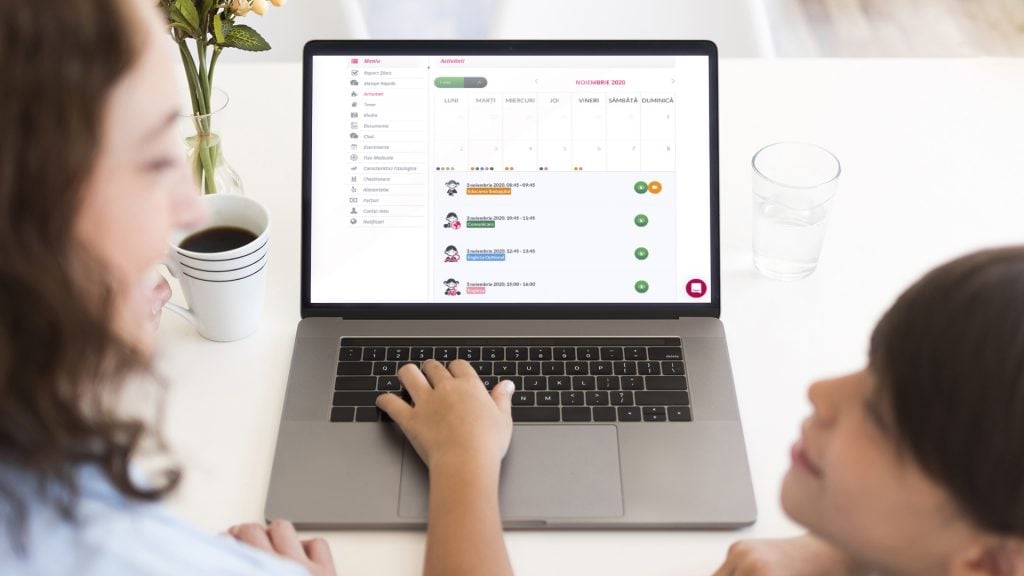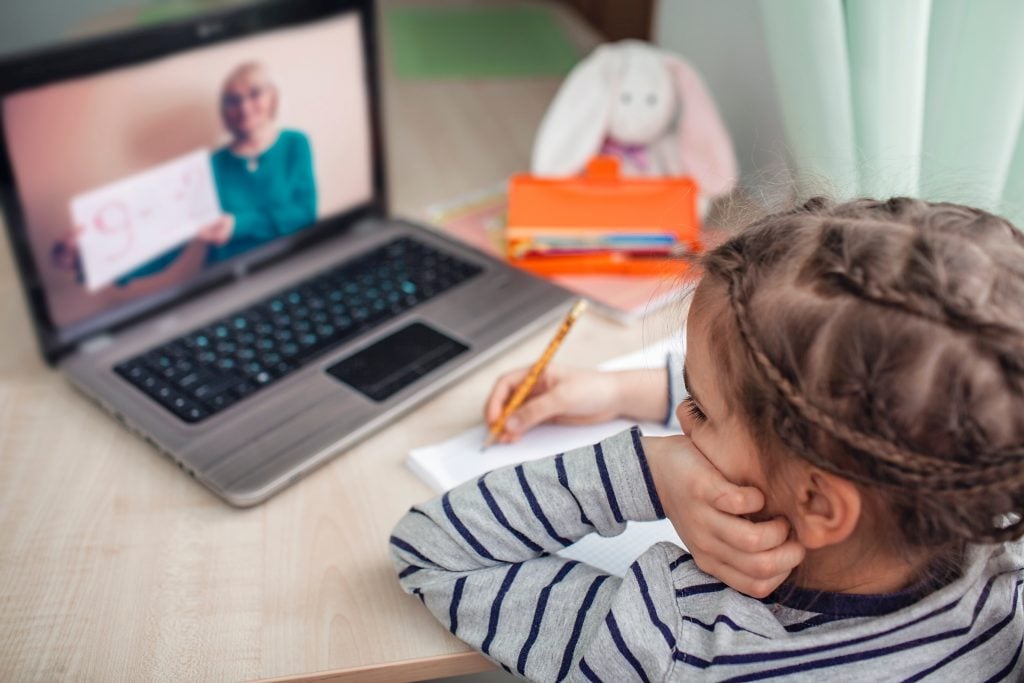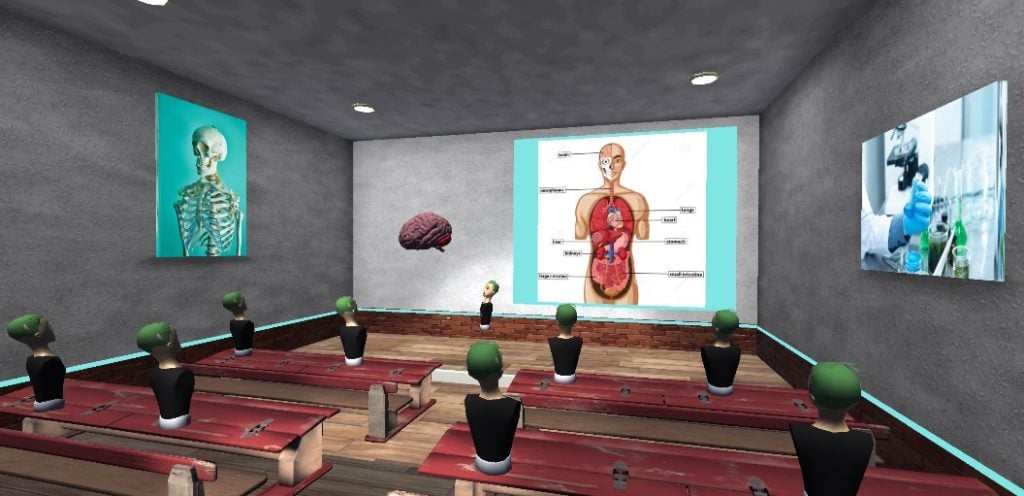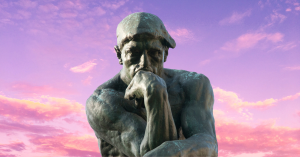After the COVID-19 pandemic wave forced the transition to digital education in Romania, the use of digital tools rose exponentially. For startups in the field, this has brought an incredible growth opportunity. Kinderpedia, a management and communication platform for schools and kindergartens, is one of the local startups whose solution saw a fulminant increase in adoption.

Romania was vastly unprepared for the digital learning transition, lacking the necessary infrastructure, such as internet connection and technical equipment, especially in rural environments and vulnerable communities. In a 2020 market research by the European Commission, 60% of respondents from Romania mentioned that they never used online learning tools before the pandemic.
Stemming from the lack of access and education on digital technology use, there is also an acute gap of digital competencies in the country. Romania ranked 26th out of 28 in the Digital Economy and Society Index 2020, published by the European Commission.
Despite these resource constraints, educational institutions across the country had to face the urgency of the situation and look for ways to adapt. Online technologies became a necessity. And local startups offering need-based solutions proved to be reliant partners in both educating users and enabling virtual classes, attendance checks, document distribution, online tests, and mobile training, among others.
“Technology can become a long-term partner for education as long as everyone involved understands its benefits,” believes Evelina Necula. Among others, technology can offer unrestricted access to quality education in remote areas, interactive learning, feedback adapted to the needs of each student, fair and objective assessment, efficiency in the administrative processes, and transparent communication for schools, with all their stakeholders. “If we look further, technology can help us reduce some of the challenges in Romania’s education system, such as the high dropout rate and functional illiteracy. Finally, it can improve the status and contributions of the teacher, both in education and the overall society,” adds the founder of Kinderpedia.
In this story, The Recursive explores how edtech startups can ride the new wave of opportunities to digitalize education, as well as navigate challenges in the market:
- Edtech startups offering relevant solutions are enjoying the surge in usage and the extension of their user base;
- There is an untapped potential for edtech startups, with challenges such as investor inexperience in the sector, lack of an open market, and poor digital knowledge;
- Future niches for diversifying school learning include AI and VR
Rise in adoption of digital solutions and in value of the startups

In many corners of the world where the educational system was disconnected from digital channels, the market saw an explosion in the adoption of digital tools when the pandemic hit. For startups, this translated into multiple benefits. We put on the investor’s lens by talking to Theodor Genoiu from Roca X, a young Romanian VC:

One example of this success is Kinderpedia. The platform offers full virtual classroom functionalities, including video teaching, daily attendance check, gradebook, documents sharing, and progress reports. Only 5 days after schools closed in the country, Kinderpedia had already launched a video module that allowed teachers to virtually connect to their class with a simple click.

Today, more than 2,000 schools and kindergartens utilize the platform, totalling 150,000 users. This is a fulminant growth of 650% in use between the beginning and the end of 2020.
Ascendia, another e-learning company with 13 years of experience and a footprint across 9 countries, had great traction in the market with their recently launched flagship product, Livresq. The lesson editor tool was launched around a year ago as a solution for publishing companies to create digital school textbooks.
Soon, it extended to educational institutions and teachers, as well as companies and e-learning specialists, as a solution to create online teaching content. But the transition to online learning greatly accelerated this trend: around 17,500 teachers and 5,500 educational institutions currently use Livresq.
Alex Malureanu, co-founder and CMO at Ascendia, explains the factors behind the success of Livresq:

Challenges facing the edtech ecosystem

Lack of experience for investors in the area
Until the pandemic pushed online learning forward, the edtech niche was not very interesting for investors in South-East Europe. Theodor Genoiu from Roca X explains why:

Notwithstanding, these classical barriers will be levied once the ecosystem develops, he adds. As they play in a less influencing market at a global level, startups in Romania need to face the additional challenge of scaling internationally faster to demonstrate the relevance of their solution.
The digital skills gap
The other critical challenge in the market is the gap in digital skills. Only 56% of Romanian teens and young adults have basic digital competencies. The performance of technological solutions for education is thus poorly understood. Qualitative benchmarks and good practices are needed to help users make informed decisions about the platform to use, says Evelina Necula.
To bridge this gap in understanding and using digital technology, Kinderpedia has a personalized onboarding process with each school. This includes teacher training and consulting in setting up the platform.

Building a community of digital education stakeholders and supporting teachers throughout the process is at the core of Kinderpedia’s philosophy. Early on in the pandemic, the startup started offering free access to its platform to public schools. They also started a webinar series for the CRED community, preparing teachers for modern education. Moreover, “events such as Connected Education or Kindergarten 2.0 (…) welded the Kinderpedia community together and provided teachers with a support group to find the inspiration, resources, support and courage needed to get through this difficult time,” adds Evelina Necula.
At Ascendia, the team has a similar education-centric and community-focused philosophy. Training users in utilizing the products is a proactive process. Teachers receive webinar training, as well as communications for every new functionality. They have also organized workgroups where teachers can share their progress and questions with each other, as well as product specialists.

Brio, the online educational testing platform for students up to the 12th grade, is also targeting the issues posed by the gap in digital skills. In partnership with UiPath, they recently launched a digital literature project. This will start with a free digital literacy test, scheduled for the beginning of the 2021-2022 school year. The team then plans to analyse the results, as the basis for potential digital literacy programs, Gabriela Barta, COO and Consumer Division Director at Brio tells The Recursive.
Low political support
Public schools are not always free to choose their digital tools or use some limited-feature ones by default. This lack of transparency and competitiveness creates a great challenge for local startups with top-tier solutions, says Evelina Necula.
The startup ecosystem could be offered more support from the state to develop and scale, both nationally and abroad. In this way, “local entrepreneurship and Romanian innovation can bring more value to the economy, but also to society,” adds Evelina.
Alex Malureanu further explains the challenges at the political level:

To change this narrative, edtech companies are active in reaching and persuading the right people in the political arena about the need to embrace new technologies. In the end, however, it comes down to how users respond to the solutions. If the product is not good enough, it will not catch on, adds Alex Malureanu. Investors agree that serving the clients’ needs is the first priority for any edtech startup: “The key to any good product is simplicity and the speed with which you can get into your user’s DNA”, says Theodor Genoiu from Roca X.
The future is blended education, with AI & VR driving online learning

Despite these challenges, opportunities for edtech startups are growing. At Kinderpedia, Evelina Necula often mentions the potential of technology, such as artificial intelligence, to personalize the educational experience:

Yet software innovation is not the only exciting prospect for the use of technology in education. E-learning is a mix of software and hardware.

An example of the use of new technologies in e-learning is Tinker, the educational platform created by UniVRse Education. Founders Mircea Matei and Flavian Popescu combined their knowledge in psychology and a vision for using 3D and augmented reality technologies in education.
Through the virtual labs, Tinker offers an engaging environment where students can visualize and interact with abstract and distant concepts. It has been proven that visualization techniques can improve the students’ learning experience. Exciting and safe science experiments and immersive history journeys in an online environment are just two of the applications put forward by Tinker.
Introducing new technologies leads to a higher-quality digital education system, that is more resilient against new crises, but also more flexible and agile, offering alternative technologies to all users and consolidating digital competencies, explain the founders.
The increased use of smartphones in our daily activities presents another opportunity for edtech to become a trusted partner to the traditional forms of learning. Izibac successfully leveraged this trend by launching a mobile app (available in the desktop format as well) that uses animated characters, games, quizzes, and video to diversify the learning experience. The tool serves a specific purpose: preparing students for one of the most important exams of their academic journey, the baccalaureate.
Founders Raluca Bacinschi-Stratulat, Adrian Stratulat, Eduard Lache, and Laurentiu Pantelimon have a powerful vision for the future of education: a free educational experience that can uncover the hidden potential of each student. Playing, they believe, is the most natural expression of human curiosity and innovation.
Going further, returning to a predominantly offline education system is natural and expected – as is the increased use of digital tools. E-learning can become a long-term partner to traditional education:









